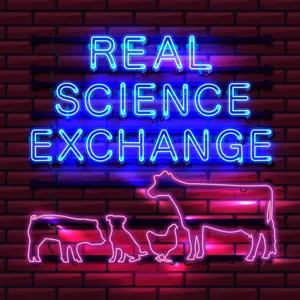The future of the gut microbiome

Discover the astonishing intricacies of microbial ecosystems and their potential to improve healthcare. Guest KC Huang is many things: A bioengineer. A microbiologist. An inventor. But mostly he’s an expert on the ecology of the human gut. He and his collaborators have developed a device that can sample bacterial DNA and create a living map of the gut microbiome from mouth to … ah, well … you know. Every step of the way, he says, we play host to trillions of guests we know very little about. It’s time we got to know them, Huang tells host Russ Altman on this episode of Stanford Engineering’s The Future of Everything podcast.
Chapter Timestamps:
(00:00:00) Introduction
Russ introduces the gut microbiome and its impact on health. The potential for engineering ourselves through microbiome manipulation.
(00:00:57) Overview of Gut Microbiome
Russ Altman introduces the guest, KC Huang. KC provides an overview of the gut microbiome and its impact on health and everyday life.
(00:05:21) Challenges in Studying the Gut Microbiome
KC Huang discusses the challenges in studying the gut microbiome, including the limited data and the difficulty in accessing the ecosystem.The unique interface between human cells and gut microorganisms is emphasized.
(00:07:02) Poop as a Data Source
Russ Altman humorously mentions the collection of poop for research purposes. The difficulties in studying the bowel's internal microbiome are discussed.
(00:08:53) Diversity of Gut Microorganisms
KC Huang addresses the diversity of microorganisms in the gut microbiome. The challenges of characterizing the complex ecosystem are highlighted.KC Huang corrects a common misconception about the location of the gut microbiome. The gut microbiome as an external influence on the human body is explained.
(00:10:45) The Impact of Gut Microbiome Beyond Bowel Movements
Russ Altman mentions the gut microbiome's influence on brain function, diet, exercise, and more. The far-reaching effects of the gut microbiome are introduced.KC Huang addresses the connection between the gut microbiome and brain function. The constant interaction between microorganisms and the brain is emphasized.
(00:12:22) Impact of Gut Microbiome on Sleepiness
The relationship between post-meal sleepiness and gut microbiome activity is mentioned. The gut as a source of constant growth and activity is explained.
(00:13:19) The Device for Studying the Gut Microbiome
KC Huang introduces an innovative device designed to study the gut microbiome by collecting samples at different points in the gut. The device's simplicity and capabilities for multi-dimensional analysis are highlighted.
(00:17:32) Exercise and Its Effect on Body Temperature
The role of exercise in increasing body temperature and its potential influence on the gut microbiome is explored. Possible connections between exercise, temperature, and gastrointestinal effects are mentioned.
(00:21:55 ) The Student Survey on Microbiome Therapies
KC Huang shares the results of a student survey about microbiome-based therapies, highlighting changes in perception after studying the field. The evolving excitement and uncertainty surrounding the field's future are mentioned.
(00:23:52) The Need to Embrace Ecosystem Complexity
KC Huang emphasizes the importance of embracing the complexity of the gut microbiome ecosystem. The limitations of reductionist approaches in the field are highlighted.
(00:28:20) Complexity with a Thousand Species
KC Huang explores the challenges of dealing with complex microbial ecosystems containing thousands of species. The significance of interactions between these species is discussed.
Connect With Us:
Episode Transcripts >>> The Future of Everything Website
Connect with Russ >>> Threads or Twitter/X
Connect with School of Engineering >>> Twitter/X






